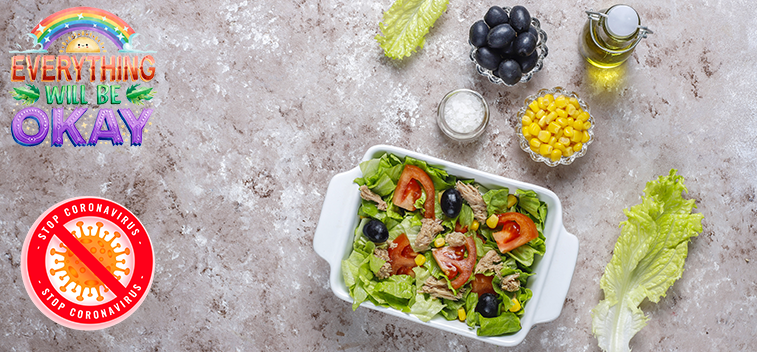
A study carried out among 9,677 participants of the SUN Project (University of Navarra Follow-up) and published in the journal Clinical Nutrition concludes that greater adherence to the Mediterranean Diet would be associated with a lower risk of COVID-19, which is reduced by up to 64 % in those people who best follow it.
The benefits that adequate nutrition has for the immune system made one hope that the Mediterranean Diet would protect against SARS-CoV-2 infection; however, it is the first time in the world that an epidemiological investigation describes it, as highlighted by the University of Navarra in a statement.
Researcher Rafael Pérez Araluce, graduated in Pharmacy and Nutrition from the University of Navarra, and Dr. Silvia Carlos, vice dean of students from the same Faculty, also a professor in the Department of Preventive Medicine and Public Health of the Faculty of Medicine, have been the main authors of the work, together with researchers from CIBERobn such as Professor Miguel Ángel Martínez-González.
Carlos explained that, to carry out the study, participants who had a medical diagnosis of infection were identified along with positive results in diagnostic tests for COVID-19, from February to December 2020. “Health professionals were excluded, given the high exposure to infection that, unfortunately, they had had. If we had included them, the results would have been distorted and it would not be possible to obtain public health recommendations for the entire population”, he pointed out.
The eating habits of the participants were evaluated using a score of 0 to 9 for adherence to the Mediterranean Diet, according to the "Trichopoulou score" , "a nine-item index established by the professor of the University of Athens Antonia Trichopoulou, known as the mother of the Mediterranean diet”, explained Dr. Carlos.
“The ten-year follow-up of these SUN Project participants is what allowed us a few months ago to analyze the hypothesis of whether adherence to the Mediterranean Diet could protect against SARS-CoV-2 infection. We were able to observe that participants with intermediate adherence (≥4 and <7) were significantly less likely to develop COVID-19 than those with low adherence. On the other hand, those who had greater adherence (≥ 7) had the lowest risk, compared to those participants with 3 or fewer points”, he specified.
Adherence to this pattern in the system developed by Trichopoulou is measured according to whether there is a higher proportion of monounsaturated fats -mainly from olive oil-, fruits and nuts, vegetables, legumes, cereals and fish; and a lower intake of meat and dairy products; as well as a moderate consumption of alcohol.
Carlos has assured that these are important results, "due to a Public Health issue," since it is the first time that a prospective study of this magnitude has seen that a healthy eating pattern can prevent COVID-19. For this reason, he stressed that “this scientific evidence must reach the greatest number of people; if not, our research is pointless, because we are working to try to improve people's lives. "
"These results show us that on a personal level we have a great margin for improvement ahead, also in the pandemic. It is often thought that living in a Mediterranean area involves, almost by default, following the eating pattern that bears its name, but This is not always the case. Research like this one needs to be replicated in order to increase the level of evidence and gradually achieve changes in the health of the population," he concluded.
Source: Mercacei